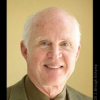Taylor Branch

Taylor Branch
Taylor Branchis an American author and historian best known for his award-winning trilogy of books chronicling the life of Martin Luther King, Jr. and much of the history of the American Civil Rights Movement. The third and final volume of the 2,912-page trilogy — collectively called America in the King Years — was released in January 2006, and a selected summary of the trilogy, The King Years: Historic Moments in the Civil Rights Movement, was released in 2013...
NationalityAmerican
ProfessionNon-Fiction Author
Date of Birth14 January 1947
CityAtlanta, GA
CountryUnited States of America
This (tape issue) is a tiny fraction of a very complicated, difficult personal subject. I am saying there is a grain of truth in what the FBI said.
But the more information that comes out, the more explicable and human historical events become. The details make the story real.
We just get after 'em. It's the biggest game for both of us.
I am glad that more of this is coming out. They really show ordinary people making extraordinary history. But I wish it had come out sooner.
He (Johnson) had an amazing spiritual quality about him,
King considered himself, first and foremost, a prophet,
When the Birmingham movement happened, it just stunned me, ... I felt a tiny breath of something very powerful. It changed the whole direction of my life's interest.
I don't really mind this although sometimes I get afraid of Willy. I get afraid of his temper. You never know what he's going to do.
There's a tremendous tide of freedom that came out of the civil rights movement,
This era liberated everyone, if you look at the long span of history, beginning with white southerners. Until black people struggled for equal rights, white women couldn't serve on juries. Almost 30 states restricted service. That's so foreign to us today.
The lessons that come from discovery of the Movement's story should point us forward.
There's a natural tendency to sanitize and polish any historical icon whether it be George Washington chopping down the cherry tree or Martin Luther King saying, "I have a dream."
Where race is involved, there is a pronounced and proven tendency in the United States for the majority culture to willfully misremember the history and turn it upside down.
And to me, that's why the civil rights era is about the future, not about the past, because it's great lessons of how citizens can organize to call on the patriotic heritage of the country to tackle some of our most intractable problems and we need to do that again.